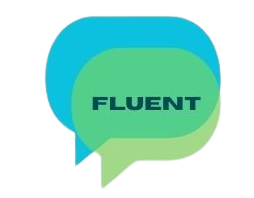Hear of, Hear about: What’s the Difference? (Includes Practice Questions)
Quick Reference "Hear of" is used to discuss one's awareness of the existence of something or someone. ("I've never heard of intermittent fasting.") "Hear about" is used to discuss one's awareness and knowledge of a particular news event or incident,
WHO and WHOM: Facts, Rules, and Uses
Quick Reference "Who" and "whom" are used as question pronouns and relative pronouns. "Who" is a subject relative pronoun and relates to the subject of a sentence (I/he/she/we/they/you as subject). "Whom" is an object relative pronoun and relates to the
Gerunds and Infinitives: Conversation Practice Questions (100+ Discussion Questions)
This page is intended to be a resource for English learners and teachers. You can practice answering these gerund and infinitive discussion questions by yourself or with a partner. You can also write the answers in a notebook, in a
Improve your writing: What are participle phrases? (with practice exercises)
Can you write this sentence in a shorter way? There were several people who were arguing about gas prices. If you said "There were several people arguing about gas prices," you are right. What did you just do? You took a relative
Comma splices in English writing: What they are and how to fix them (and when they’re okay)
If you didn't learn how to use commas in school, or if English isn't your first language, it's understandable that you might not know what a comma splice is. In short, it's one of the most common punctuation errors in
“Because” vs. “Because of”: The Difference in Usage
Recommended level: Upper intermediate / Advanced Is it "because that" or "because of that"? Read the common mistakes section at the bottom to find out. Quick Reference "Because" and "because of" are used for introducing the reason or reasons for something. Typically,
CAN / COULD / BE ABLE TO: Uses, Structures, and Examples
Recommended level: low intermediate Quick reference Can is used for present ability and possibility ("I can dance." / "I'm sorry, but I can't help you.") Can is informally used for offers and requests ("Can I help you?" / "Can I make
English Questions with “LIKE”: What does he like? What is he like?
Quick Reference What does he like? --> Tell me about his preferences, things he enjoys, and/or his hobbies. What would he like? --> Tell me about his preference in the moment or in the future, or about his hypothetical preference
Phrasal Verb Synonyms / Phrasal Verbs that Mean the Same Thing (Includes GIFs & Practice Questions)
Recommended level: Upper Intermediate/Advanced English has a lot of phrasal verbs. Luckily, phrasal verbs have synonyms. This means, in some cases, you can use more than one phrasal verb to say the same thing. This is good news because it means
English punctuation: How to use semicolons
Good punctuation is fundamental to good writing. Many of us take commas, periods, question marks, and exclamation marks for granted. We barely notice them, or how they affect the mood and rhythm of a short story, an article, an email,

